As we all know, Mercedes Benz oil standards have 229.5, 229.6, also 229.51, 229.61, 229.71, various standards dazzling, so what is the difference between these oil standards?
First of all, Nippon Lubricants obtained Mercedes-Benz certified oils are: MB229.5, MB229.52, MB228.51, MB229.71.
Today, the state master will give you a talk about the state of these four Mercedes-Benz certified motor oil standards are different.
MB228.51
Let's start with MB228.51, which is the only diesel engine oil that Nippon has certified in the Mercedes-Benz certification standard.
This oil corresponds to the CK-4 standard for diesel engines that meet greenhouse gas (GHG 17) and U.S. Environmental Protection Agency (EPA) emission standards with lower CO2 emissions and higher fuel economy.
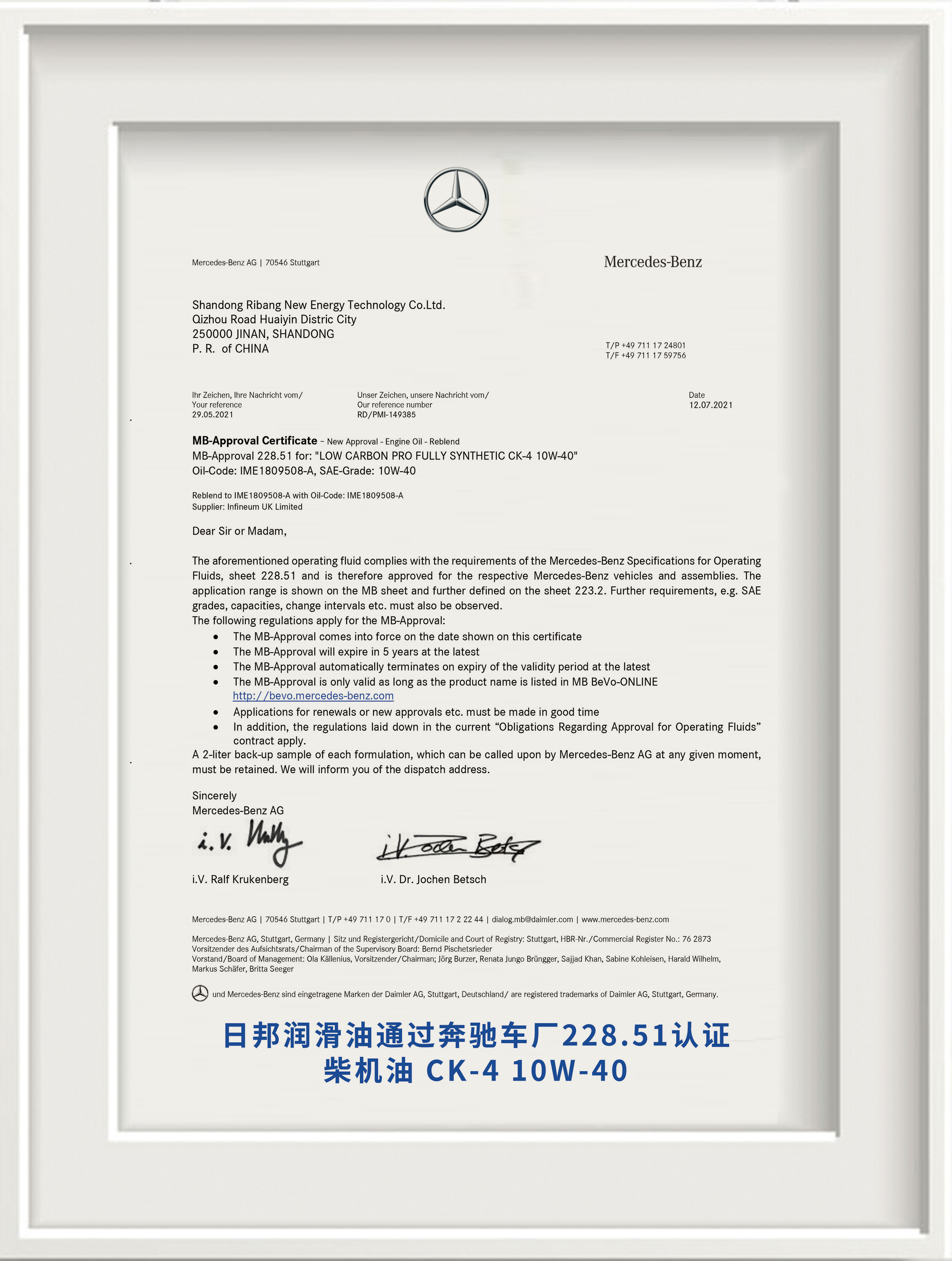
This oil reduces engine fuel consumption, saves fuel and improves engine lubrication and anti-wear properties, extending engine life.
MB229.5
MB229.5 corresponds to the A3B4 standard in ACEA.
This oil has high viscosity, large film thickness and strong toughness, which provides better performance in anti-wear, anti-sludge, carbon and oxidation prevention, and fuel saving.
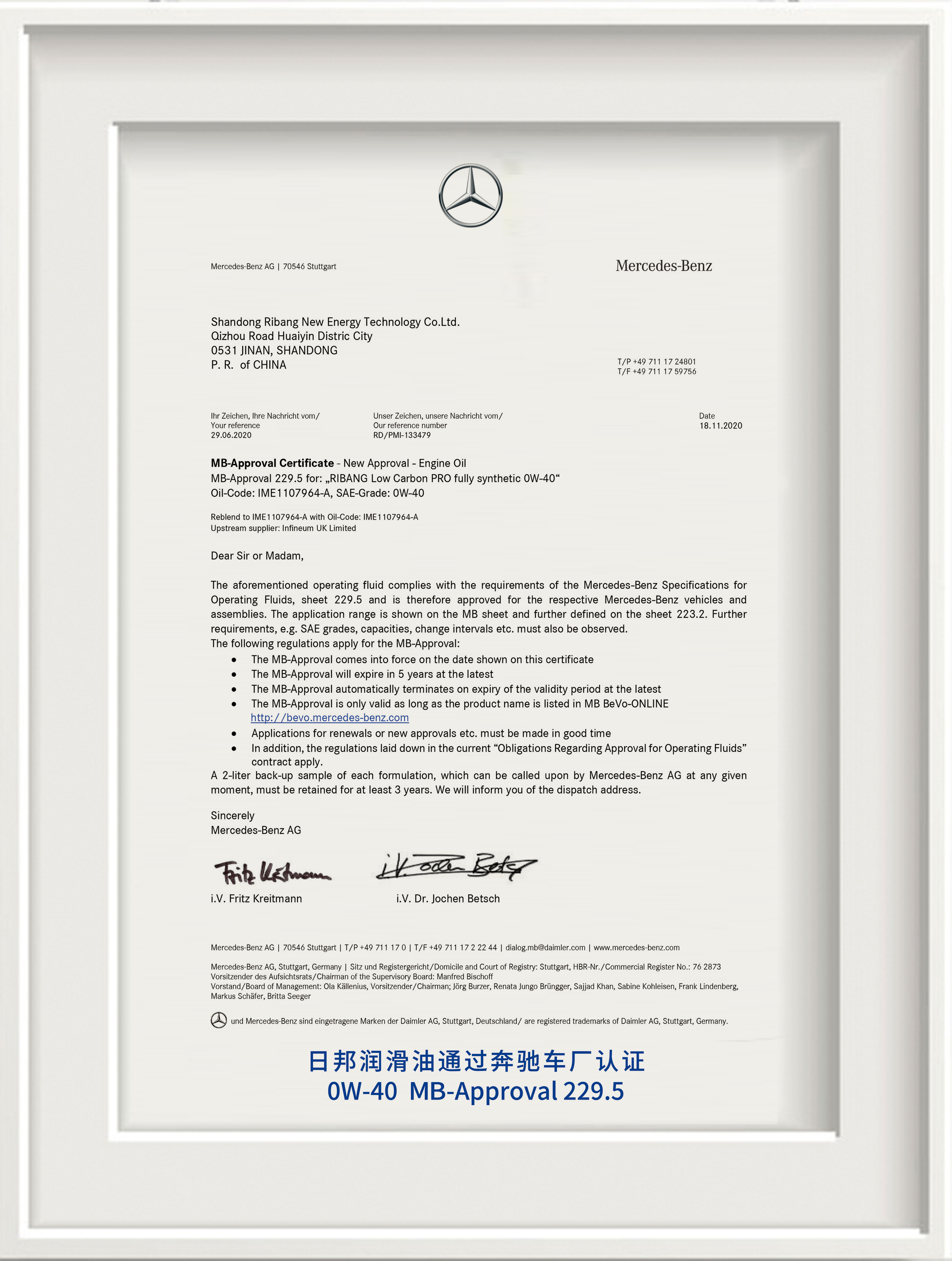
It is especially suitable for some Mercedes-Benz owners who drive aggressively and often drive highway and high mileage.

However, this oil is a high ash oil and is not suitable for use in vehicles with particle traps, meaning it is not suitable for use in Euro 6 or National 6 vehicles.
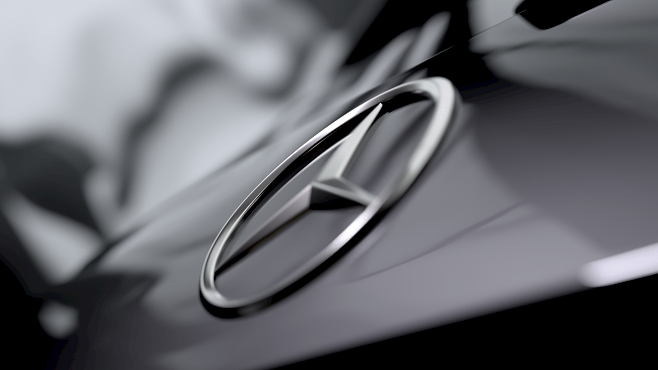
MB229.52
MB229.52 corresponds to the C2C3 standard of ACEA certification, and unlike MB229.5, MB229.52 is a low ash motor oil.
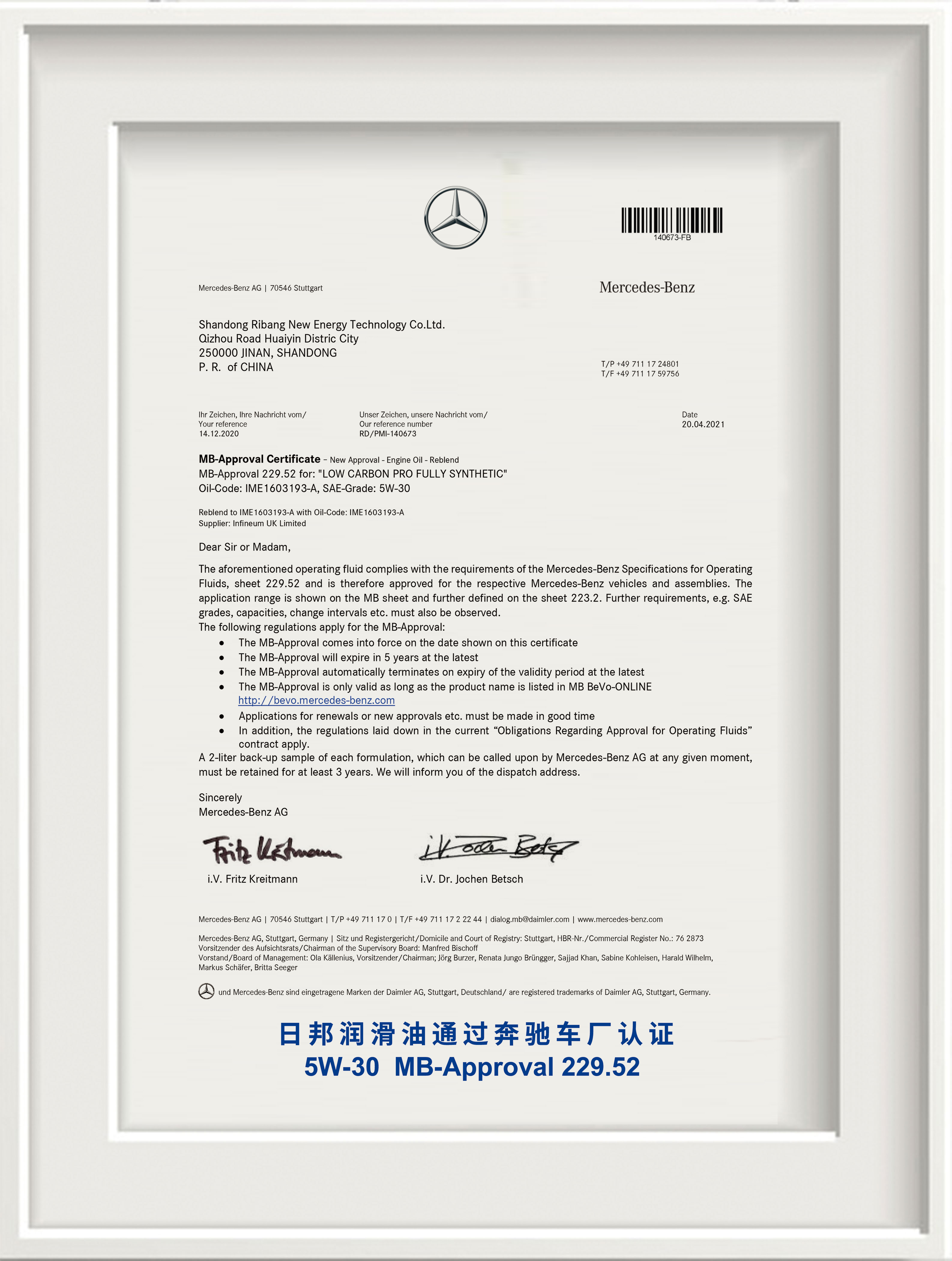
It is also known as LowSAPS (Low Sulfur, Low Phosphorus, Low Ash) lubricant, and can improve fuel efficiency by at least 2.2% compared to 229.1; it has higher performance in anti-wear, anti-sludge, carbon build-up prevention and oxidation resistance.
It is particularly suitable for use in newer Bluetec (with environmentally friendly automotive urea) engines.
MB229.71
MB-229.71 is standardized to ACEA C5.
Like MB229.52, it is also a LowSAPS (Low Sulfur, Low Phosphorus, Low Ash) lubricant.
MB-229.71 is the latest Mercedes-Benz engine oil standard, and Mercedes-Benz is introducing this new specification in 2016 for diesel and gasoline-engined cars equipped with DPFs with 0W20 and 5W20 viscosities.
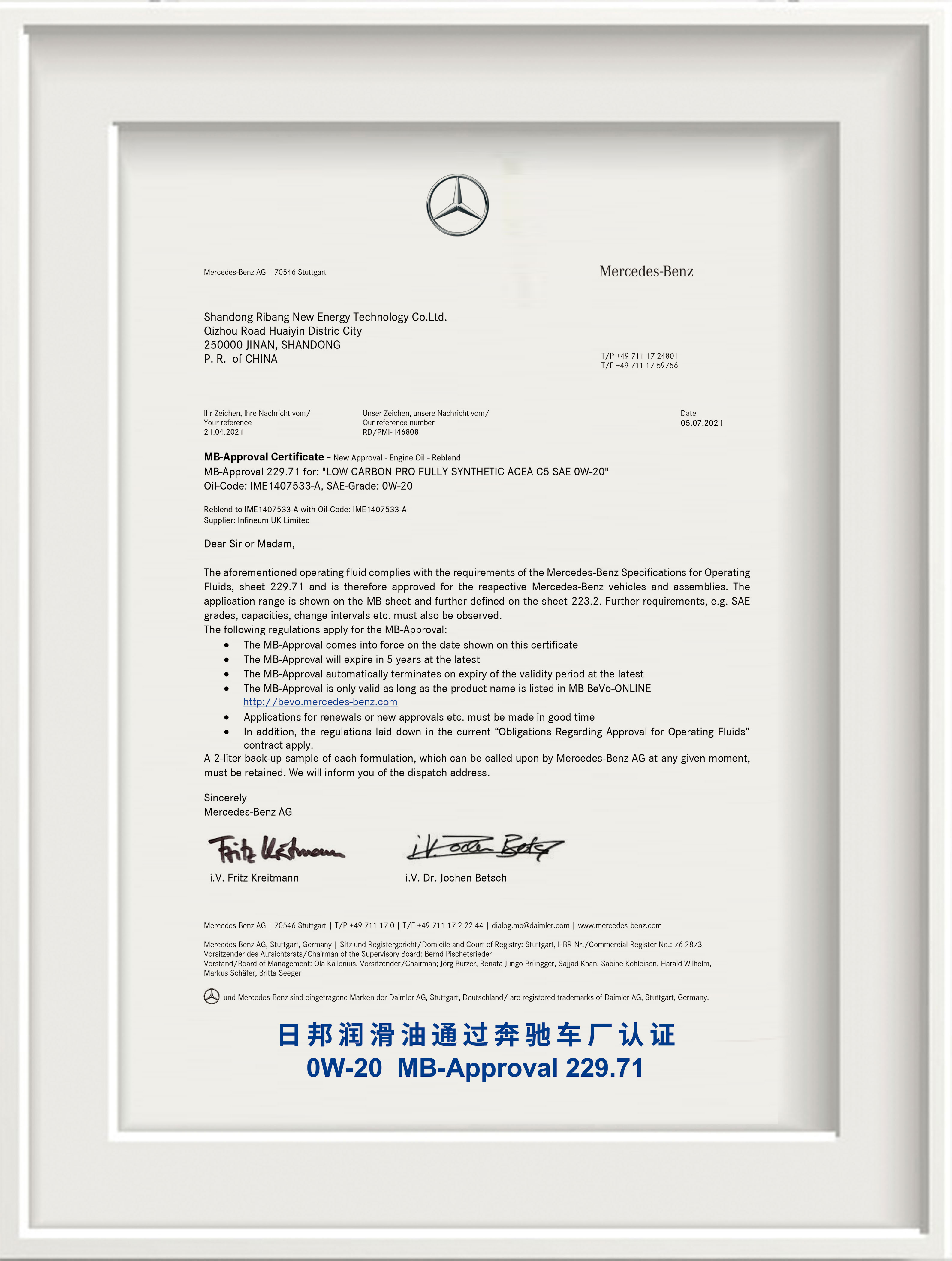
MB-229.71 Standard Motor Oil is widely used in high-performance turbocharged engines and models with exhaust gas treatment systems;
It has excellent lubricating performance, outstanding cleaning performance and thermal stability, inhibits sludge and carbon deposits, and effectively reduces engine wear.
In addition, Mercedes-Benz 229.71 oil certification specification is based on the needs of the original engine specifically designed to apply the oil specifications, the specification requires that the oil tested in the Mercedes-Benz designated bench test, to be driven 15,000 kilometers to 30,000 kilometers of the oil change period of the test.
It is not easy for an engine oil to pass MB certification, and it is even more difficult to pass its highest certification MB-229.71. Being able to obtain Mercedes-Benz certification signifies that the quality of the product has reached the world's leading level.
If MB certification is known as the industry's lubricant standards certification of the crown, MB-Approval 229.71 highest certification is the crown of the jewel!
Mercedes-Benz engine is the outstanding representative of “Made in Germany”, for supporting products with strict standards, Mercedes-Benz engine supporting oil in anti-wear, oxidation resistance and fuel economy requirements.
Mercedes-Benz certification standards are not only higher than the American Petroleum Institute API and European Automobile Manufacturers Association ACEA, but also higher than the requirements of other automobile manufacturers, and have become an important reference index for vehicle brand owners and car owners when choosing lubricants.